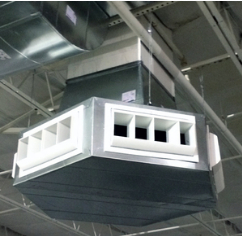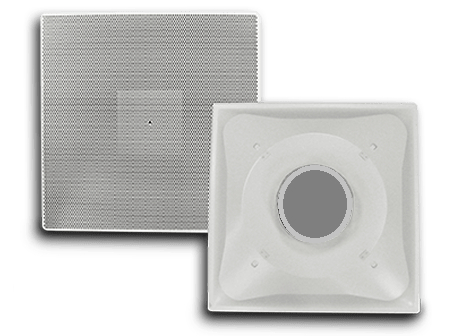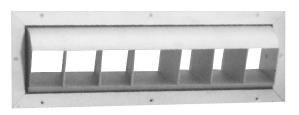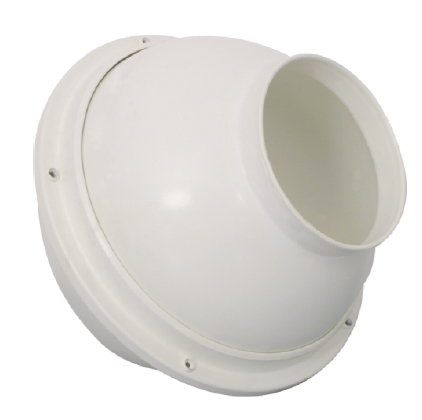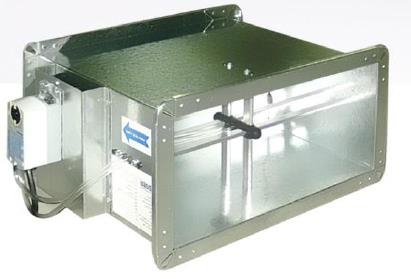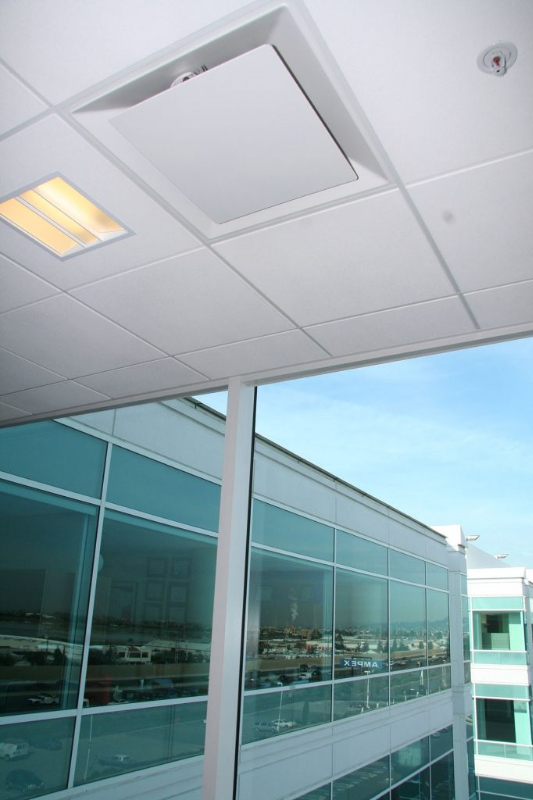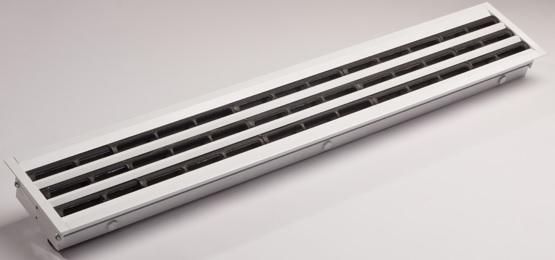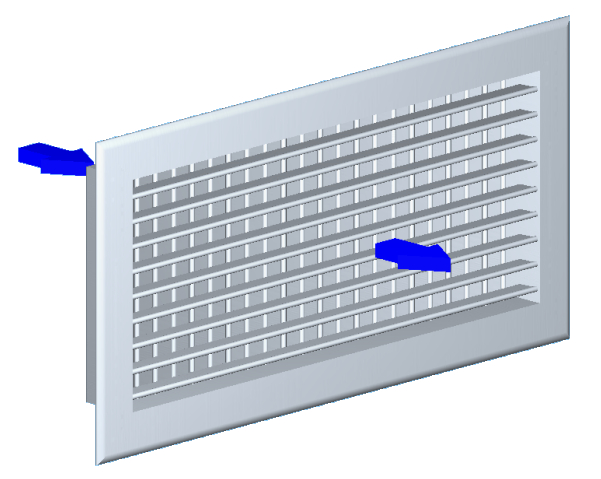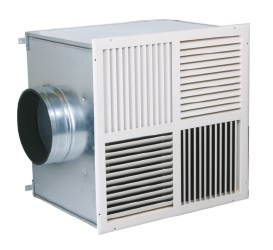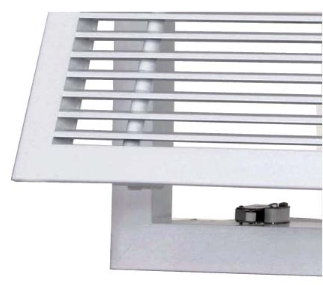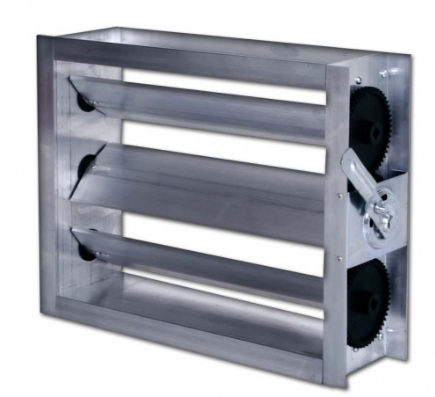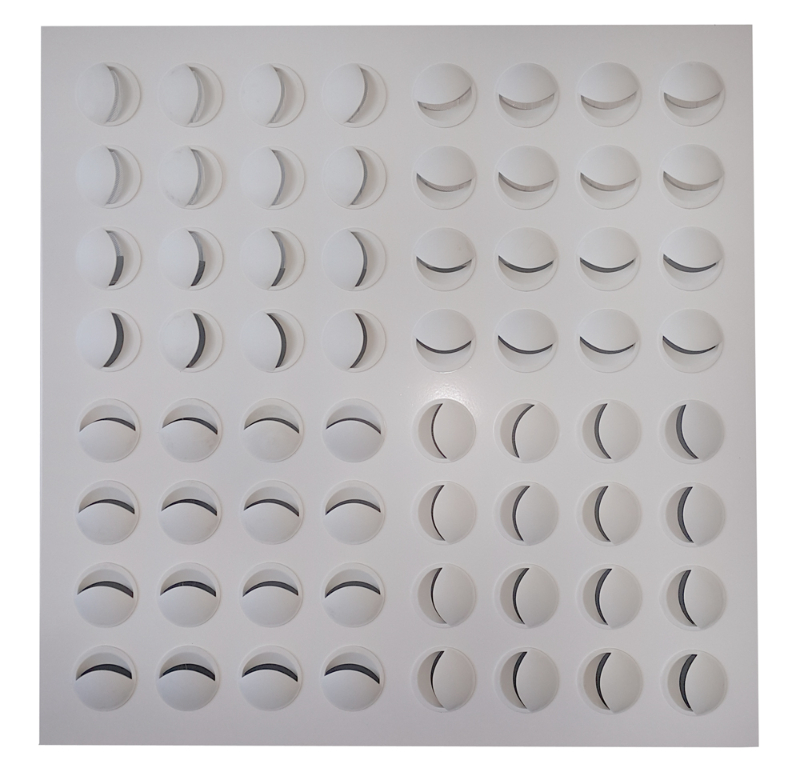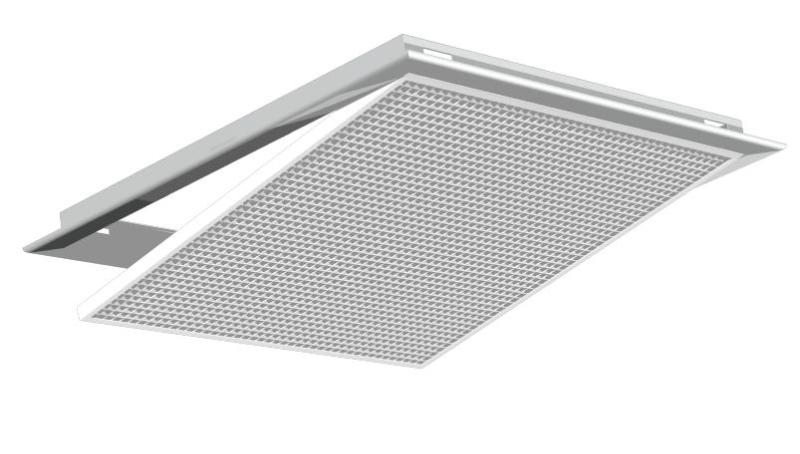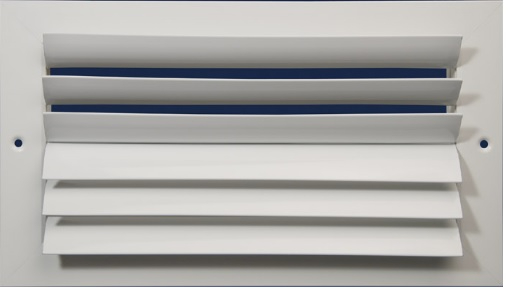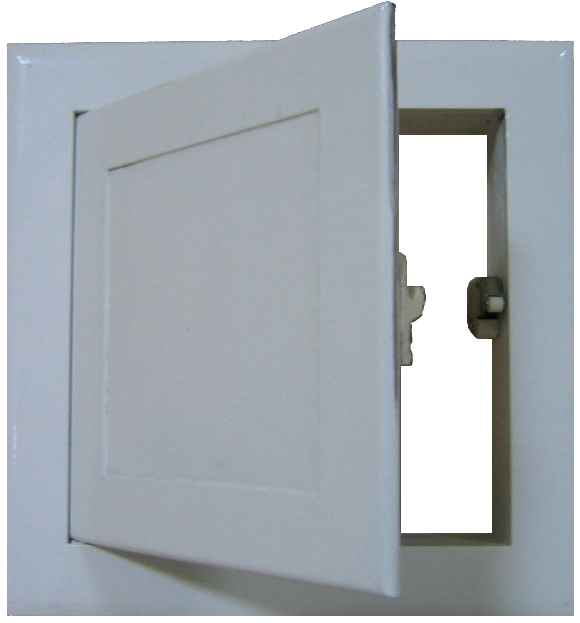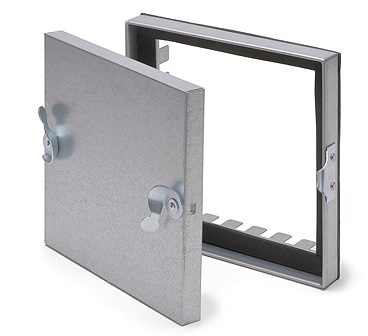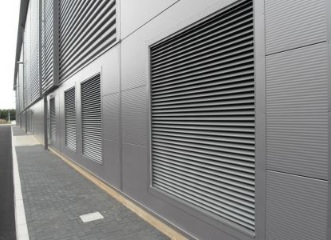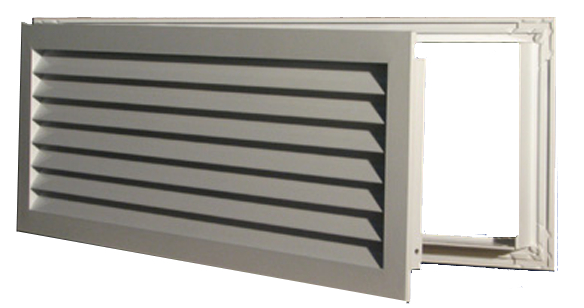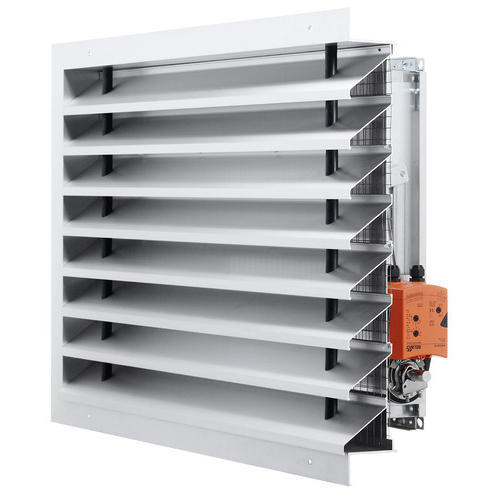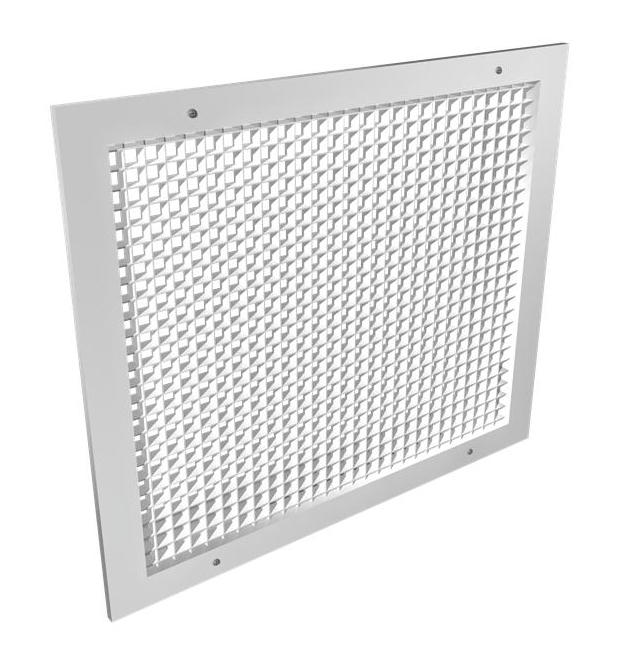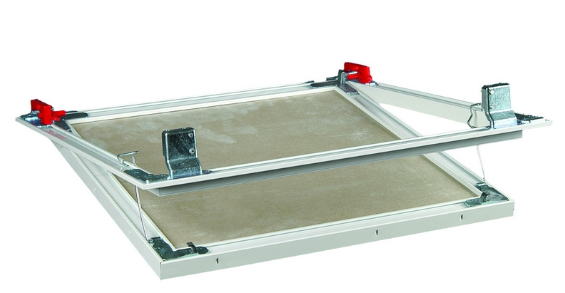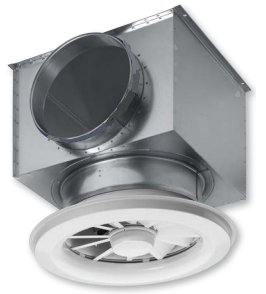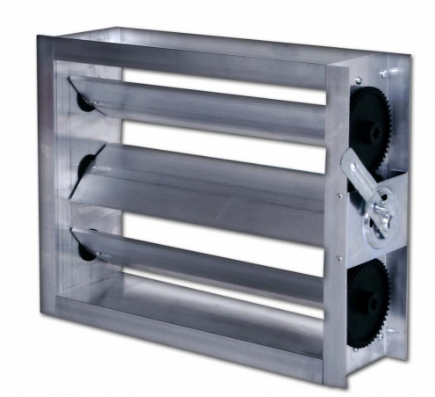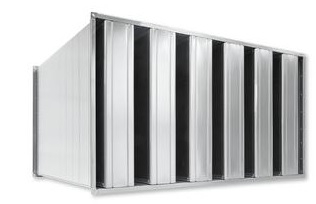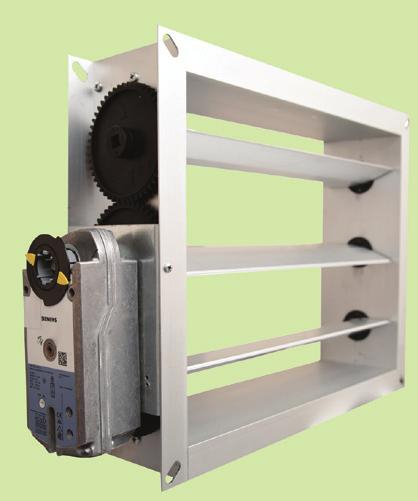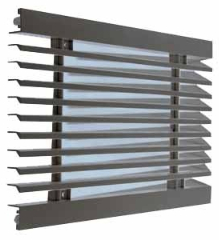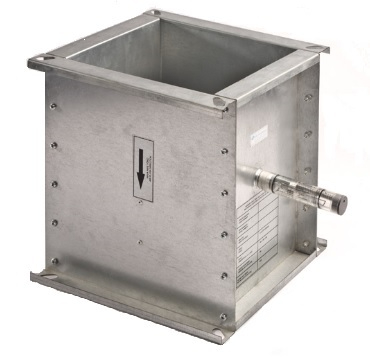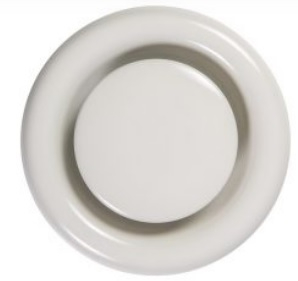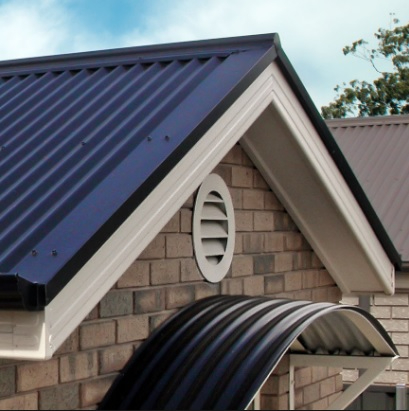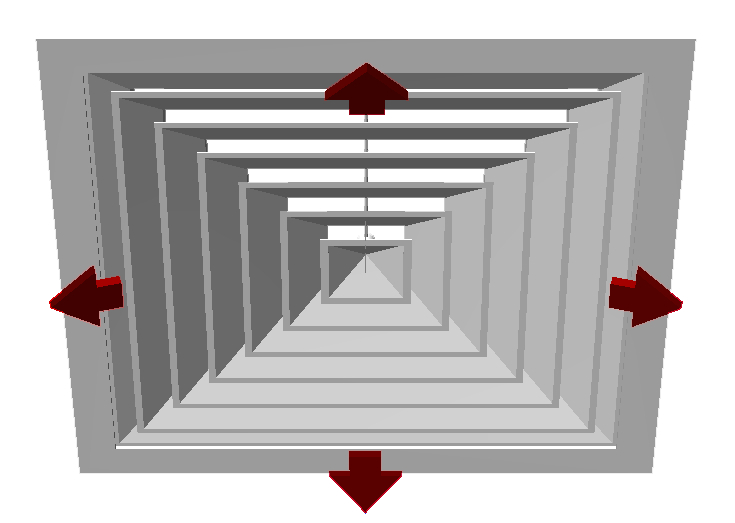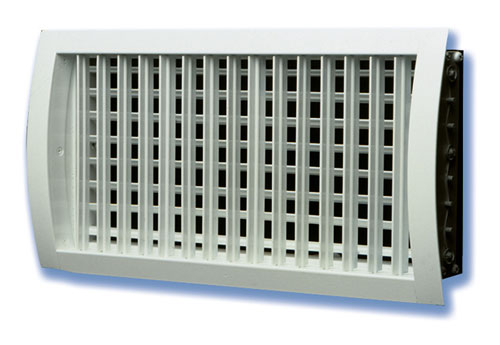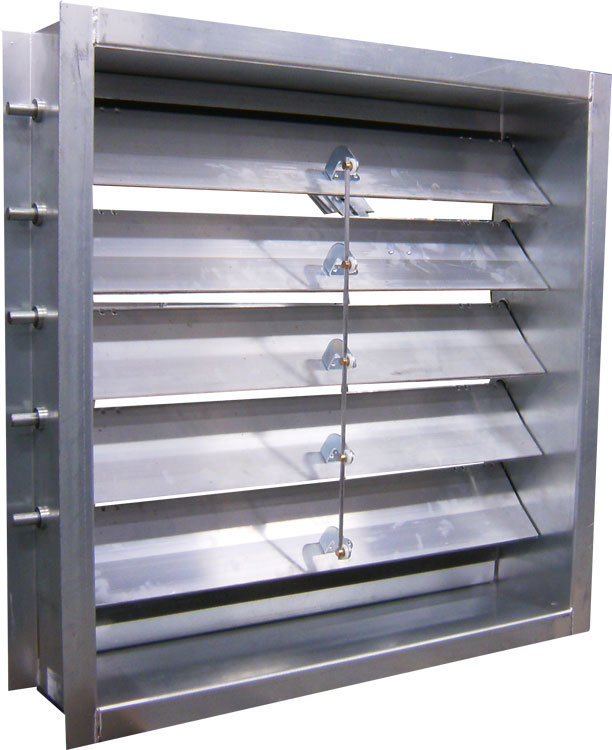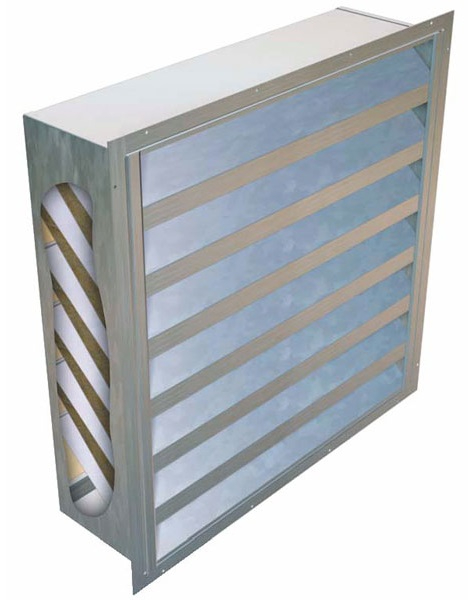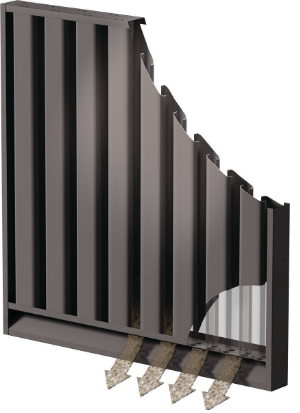- External weather louvres are externally mounted air transfer devices for the fresh air and exhaust air of air conditioning systems. They are installed in external walls and façades. Their narrowly arranged blades give good protection against the direct ingress of rain as well as against leaves and birds.
- Under certain unfavourable conditions, such as heavy rain, and depending on the airflow velocity it might happen that slight quantities of water enter together with the air. This is why the airflow velocity in fresh air openings should not exceed 2 – 3 m/s.
- • Maximum width of 2500 mm, maximum height of 2410 mm, maximum area of 4 m² (aluminium variant also for continuous horizontal runs)
- • Low differential pressure due to aerofoil blades
- • Low air-regenerated noise
- • All aerodynamic data is measured in aerodynamics and acoustics laboratories
- • Available in standard sizes and many intermediate sizes
- • Variants made of galvanised sheet steel, aluminium or stainless steel
- • Flexible arrangement of sections for covering large areas (should then be fixed on a support structure which is to be provided by others)
Louver
HS Code : 841590
Certificates :



Product Details
Technicial Specifications
Other products
About the Company
Contact
External weather louvres are externally mounted air transfer devices for the fresh air and exhaust air of air conditioning systems. They are installed in external walls and façades. Their narrowly arranged blades give good protection against the direct ingress of rain as well as against leaves and birds.
Under certain unfavourable conditions, such as heavy rain, and depending on the airflow velocity it might happen that slight quantities of water enter together with the air. This is why the airflow velocity in fresh air openings should not exceed 2,5 – 3 m/s.
CONSTRUCTION:
Standard Material Aluminum Optional:.304-316 Stainless Steel, Galvanized Sheet Steel.
APPLICATION:
· Maximum width of 2500 mm, maximum height of 2410 mm, maximum area of 4 m² (aluminium variant also for continuous horizontal runs)
· Low differential pressure due to aerofoil blades
· All aerodynamic data is measured in aerodynamics and acoustics laboratories
ACCESSORIES:
· Bird and insect screens
· Filters
· Dampers

